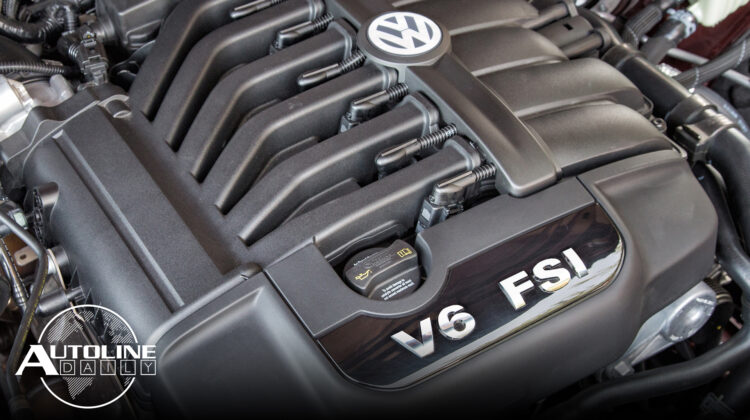
Follow us on social media:
Runtime: 6:59
0:08 CNH Industrial to Split Operations
0:59 Continental Considers Powertrain Spinoff
1:20 Weekend Race Results
2:16 Bugatti Tops 300 MPH in Special Chiron
3:19 BMW Will Stop Producing the i8
4:43 VW Cheated on Gas Engines Too
Visit our sponsors to thank them for their support of Autoline Daily: Bridgestone and Kiekert.
This is Autoline Daily reporting on all aspects of the global automotive industry.
ANOTHER COMPANY TO SPLIT OPERATIONS
We keep seeing automotive companies and suppliers divesting operations to raise money and get out of businesses where they don’t see much growth. CNH Industrial announced plans to split its operations. Its truck, bus and engine division, which includes Iveco, will be spun into one unit and its agricultural and construction divisions will be spun into another. CNH expects to complete the split by 2021. The company also announced a partnership with Nikola Motors to develop fuel-cell and battery electric semi-trucks, CNH is taking a $250 million stake in Nikola. CNH’s top shareholder is Exor, the holding group of the Agnelli family which also controls FCA and Ferrari.
CONTINENTAL CONSIDERS POWERTRAIN SPINOFF
In related news, the giant German supplier Continental revealed it’s considering spinning off its powertrain division as well as exploring a partial IPO with the new unit. While the company hasn’t made a formal decision, it’s already come up with a name for the new powertrain division, Vitesco Technologies.
WEEKEND RACE RESULTS
On race tracks over the weekend, Charles Leclerc won his first Formula One race, powering his Ferrari to the checkered flag at the Belgium Grand Prix. In Indycar, Will Power took his Penske-Chevrolet across the finish line in front of everyone else. And in NASCAR, Eric Jones won the Darlington 500 in his Toyota Camry.
BUGATTI TOPS 300MPH WITH SPECIAL CHIRON
The Bugatti Chiron with nearly 1,500-horsepower is no doubt a fast car, but a special-edition version of the car is the first near production car to top the 300 mile-per-hour barrier. The car has a number of aerodynamic upgrades, most notably, an extended rear tail section. There’s also an additional safety cell added to keep the driver safe and the already reinforced tires have another layer of reinforcement. Driver Andy Wallace was able to hit nearly 305 miles-per-hour in the official run, which means he was traveling 136 meters or roughly 446 feet every second. But this is something of a last hurrah for Bugatti. It says it’s withdrawing from the competition of trying to produce the fastest serial production cars and will instead focus on other areas.
BMW WILL STOP PRODUCING THE i8
And speaking of last hurrahs, BMW will end production of the slow selling i8 next April and is sending the car off with a limited-edition model. The Ultimate Sophisto Edition, which is available on both coupe and roadster, marries a dark grey color with copper accents that is reflected in the paint, unique 20-inch wheels and interior materials. Other touches include clear glass over the rear lights and black painted calipers with blue accents. BMW is also giving a similar treatment to the i3, which it calls the Edition RoadStyle model. It will make 1,000 examples of the i3 and only 200 versions of the i8.
We’ve got a great Autoline After Hours coming up this Thursday, when Mike Tracey from the Agile Group will join us. He sure knows a lot of what’s going on at Rivian, so be sure to join John and Gary for some of the best insights into the automotive industry. And speaking of John, he’s coming up next with something to say about the latest cheating episode at Volkswagen.
VW CHEATED ON GAS ENGINES TOO
Just when we thought all the cheating on diesel engines was over at Volkswagen, it turns out the company was also cheating with some of its gasoline engines. It used cheating software on 98,000 Audi, Bentley, Porsche and VW models sold or leased from 2013 through 2017. As a result of a lawsuit filed by owners VW will reimburse them, with the total cost coming to about $96.5 million.
The software would determine when the cars were being tested by the EPA and would change the shift points to improve fuel economy by about 1 mile per gallon. Some people may think that this is a minor infraction, but if VW tried to improve fuel economy that much through weight reduction, for example, it would have had to cut the weight of those vehicles by about 140 kilos, or 300 pounds. That would have entailed expensive material substitution, plus major re-engineering and re-tooling. VW must have decided that a few simple algorithms would be a lot cheaper than going through all that. And I can only imagine that the engineers who developed the software laughed at all their competitors as being a bunch of saps.
Now the question is: are we at the end of all this cheating? And why did VW, which is trying to convince consumers that it has repented and turned the corner in a propaganda campaign titled “Hello Light” have to be sued by its owners to come clean that it also cheated with gasoline engines? Couldn’t it just have come clean on its own?
We here at Autoline believe the automotive industry is a critically important part of the global economy. But from UAW corruption to Volkswagen cheating there are times when it gets really hard to defend it.
Anyway, those are my thoughts, and with that we wrap up today’s report.
Thanks to our partner for embedding Autoline Daily on its website: WardsAuto.com

John McElroy is an influential thought leader in the automotive industry. He is a journalist, lecturer, commentator and entrepreneur. He created “Autoline Daily,” the first industry webcast of industry news and analysis.




